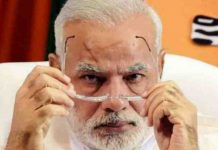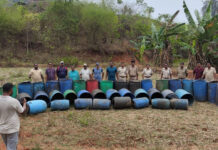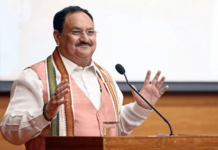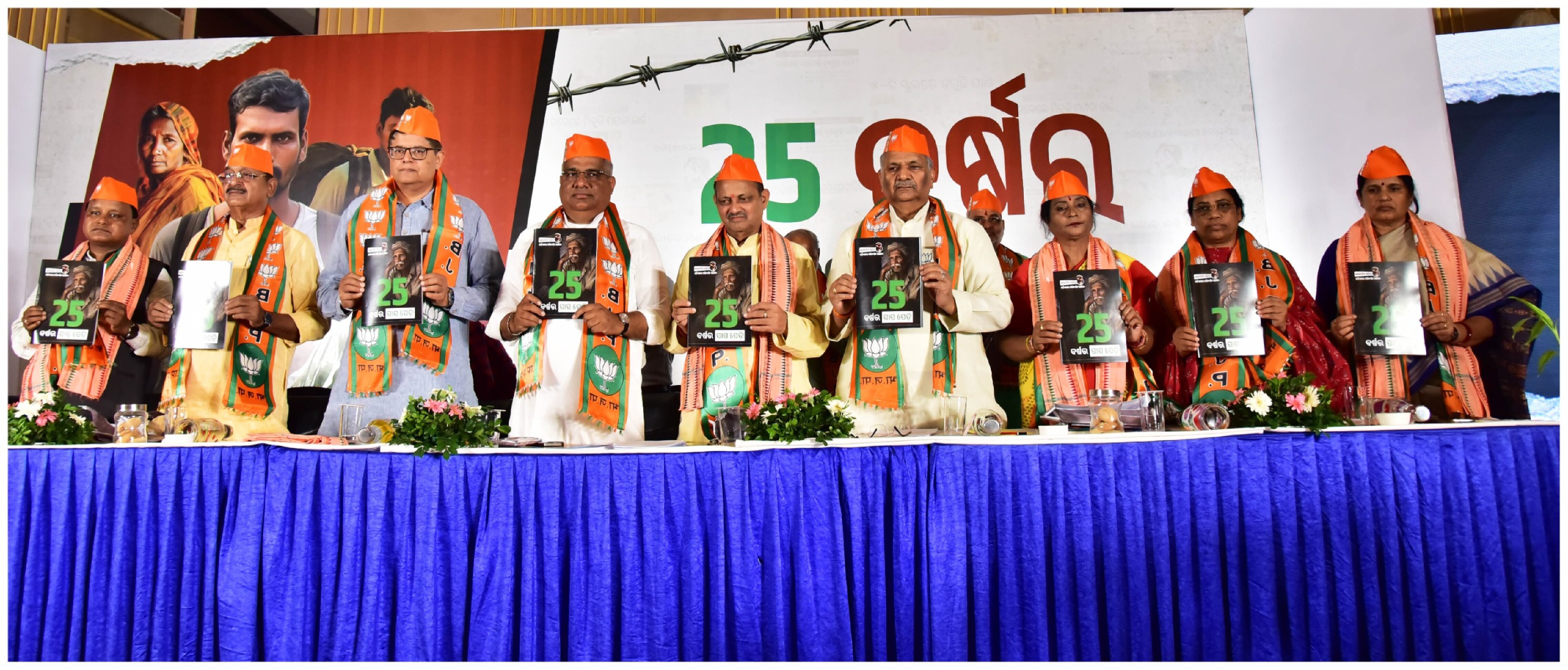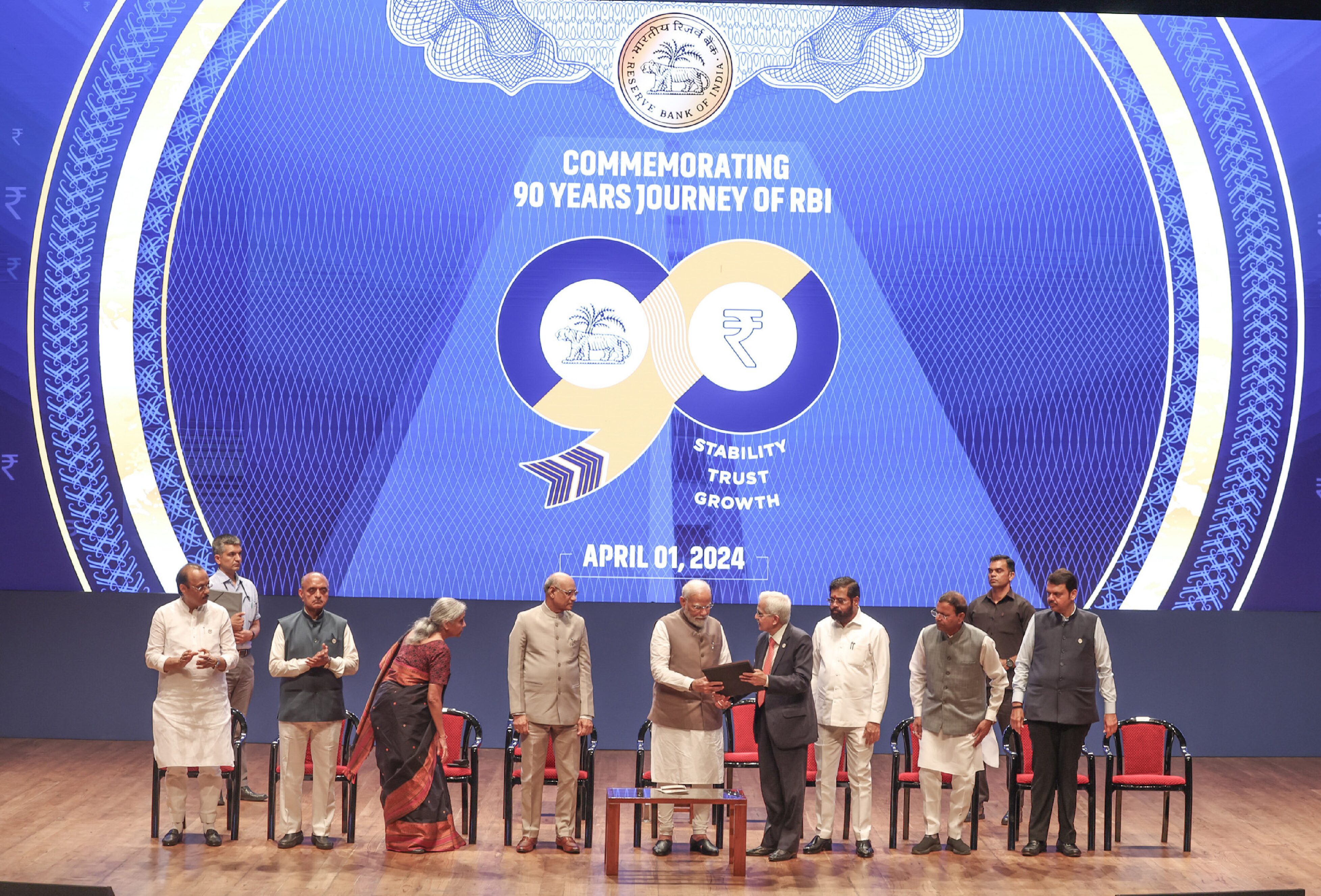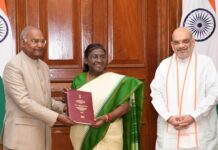Many important developments have taken place in the state on the COVID fight front, some of them tinged with politics. It is important to remember that some of these developments will have far reaching consequences. Hence they must be studied carefully and responded to with equal care by the stake-holders.
A string of politically important developments have taken place on the COVID-19 front in the last few days; even as the state government struggles to bring the situation under control. The most recent of these developments has been the replacement of Prem Chandra Chaudhary as the municipal commissioner of Bhubaneswar and his replacement with senior IAS officer, Sanjay Kumar Singh.
The move came as a surprise in the middle of a raging second Covid wave in the Capital city. This has triggered speculations that the top bosses were displeased with Covid management in the city where number of cases and casualties were going up and people were openly flouting Covid protocol. Even the vaccination drive was in a mess. This was not the first time that Bhubaneswar corporation’s covid management faced criticism. It had been criticized earlier also but heads had not rolled due to the political clout enjoyed by some people.
Now the BMC has been put under the charge of 1997 batch IAS officer, Sanjay Singh who will also hold additional charge as Vice-Chairman of Bhubaneswar Development Authority (BDA). One has to see if he can produce results.
Another issue that has taken a political turn is the advice of union minister Dharmendra Pradhan to chief minister Naveen Patnaik to involve opposition parties in the fight against the pandemic and constitute a COVID crisis management committee to deal with the situation arising out of it in the state. His call, however, has triggered a severe backlash from the ruling BJD and the Opposition Congress and left parties.
“This is double standards. When thousands of people are dying every day in the country, Modi government is refusing to take the advice of the Opposition. And here you are asking us to involve the Opposition in the fight against COVID. The minister should give this advice to Modi,” said a BJD leader.
Leaders of other parties also reacted sharply to Pradhan’s advice and asked him as to why does not he offer the same advice to his boss and Prime Minister Narendra Modi. “Is he scared?” asked a leader sarcastically. Pradhan on May 12, Wednesday had urged Odisha chief minister Naveen Patnaik to take everyone with him in the state’s fight against COVID 19 and constitute a COVID crisis management committee including members of all the political parties. “Next 15 days will be crucial, I urged the chief minister to engage all intellectuals, members of political parties and social activists in the fight against COVID 19,” Pradhan had tweeted.
In another important development chief minister, Naveen Patnaik has declared working journalists of the state as ‘frontline COVID warriors’ in acknowledgement of the commendable work being done by the members of the media fraternity in these trying times, often risking their own lives. As the chief minister himself admitted journalists were doing a great service to the state by providing seamless news feed and making people aware on issues relating to COVID-19. He said their work was a great support to the state in its fight against the pandemic.
The step that is set to benefit more than 6000 working journalists was long overdue. Members of the media fraternity have been demanding the status of frontline corona warriors with some justification ever since the pandemic broke out. Nearly a dozen of them have succumbed to the disease in the line of duty in different parts of the state. Some people may argue that battling such risks is a professional hazard which a journalist must take in his stride. The same is also true of professionals like doctors and nurses but they were given the status of corona warriors right in the beginning of the battle. There was no reason not to put journalists on the same footing considering that most of them working in the rural and semi-urban areas are paid a pittance for the kind of risks they take. But it is these people who constitute the backbone of newspapers and news channels.
The government led by chief minister Naveen Patnaik deserves kudos for having taken a lot of steps for the benefit of state’s journalists including covering them under a health insurance scheme. The status of frontline COVID warriors will not only provide them added security but also motivate them to work harder for the good of the society.
Media has often been described as the watchdog of the society and hence it has a great role to play in creating awareness among people about issues of importance. Some people mistakenly perceive media as the adversary of the government. The job of the media is to highlight the truth in the larger interest of the government and the society. By raising issues of importance and analyzing them thoroughly it actually helps the government which can make course corrections if necessary.
In these tough times when the entire country is in the grip of a pandemic that has triggered an unprecedented health crisis, stretching the resources of the government the role of the media becomes all the important. It is the duty of the members of both print and electronic media to act as a bridge between the government and people by disseminating information that is necessary.
On the other hand the state government recently requested the Centre to provide 25 lakh doses of Covishield vaccine and adequate numbers of oxygen cylinders for effective management of the raging pandemic in Odisha. The demands were placed by Health and Family Welfare Minister Naba Kishore Das during a virtual meeting on Covid situation in Odisha with Union Health and Family Welfare Minister Dr Harsh Vardhan.
Das said as 22 lakh people are waiting for second dose of Covishield vaccine in the State, the Centre should ensure supply of the vaccine on an urgent basis. He informed the Union Health Minister that the daily output of medical oxygen in the State is 52.9 tonne while the production is 155.51 tonne through cylinders.
Stating that the surplus liquid medical oxygen (LMO) cannot be utilised due to shortage of cylinders, Das said the State urgently needed 15,000 B-type oxygen cylinders and as many D-type cylinders with concentrators. Odisha now has more critical patients and requires around 500 ventilators, he said.
The Minister maintained that the State needs sufficient rapid antigen test kits to ramp up Covid-19 tests. “For the safety of health workers and doctors, the State needs 5 lakh PPE kits, 10 lakh gloves and 10 lakh N-95 masks,” he said and requested the Centre to set up a 24X7 helpline in the national task force for timely assistance and information.







